Did you know that the microorganisms living inside you outnumber your own human cells by nearly 10 to 1? The microbiome —often called your “forgotten organ”—is revolutionizing our understanding of immunity, digestion, metabolism, and even mood. This guide will help you unlock the surprising health potential hidden within your own body by understanding and optimizing your gut microbiome .
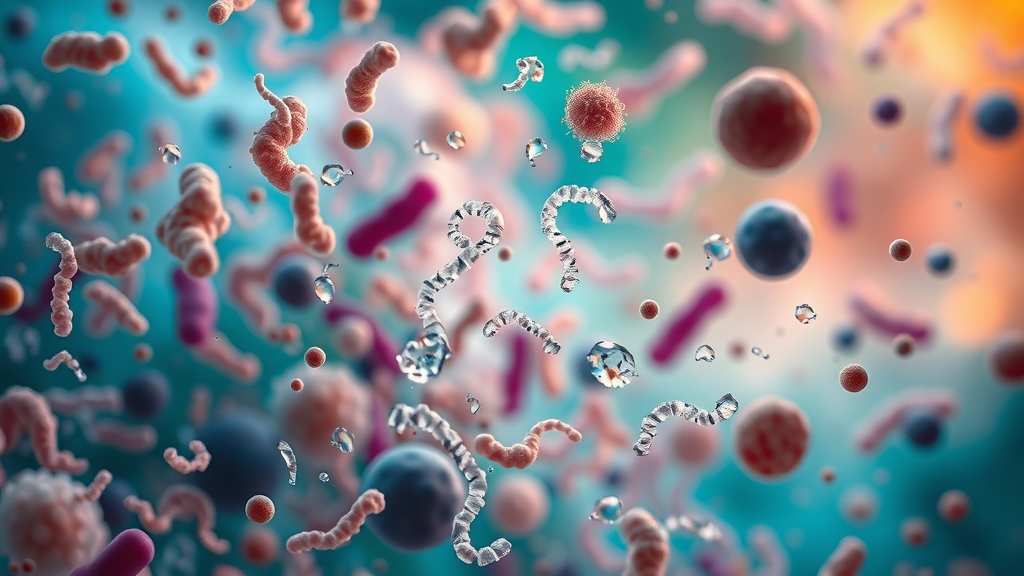
A Surprising Truth About Your Microbiome: Why It Matters More Than You Think
When it comes to health, few people realize that their microbiome has a remarkable and measurable impact on nearly every body site, from your GI tract to your skin and mouth. In fact, your gut microbiome plays an important role in regulating the immune system, managing blood sugar, and even communicating with your brain. Scientists are finding that differences in your microbial community can affect metabolism, immunity, mental clarity, and even your risk for chronic disease.
- Your body’s microbiome outnumbers your own cells by 10 to 1.
- Scientists now link microbiome diversity to immunity, metabolism, and even mood.
- Discover how unlocking the secrets of your gut microbiome could transform your overall well-being.

What You'll Gain From Exploring the Microbiome
By delving into the intricate world of the microbiome , you’ll gain far more than fascinating facts. This article empowers you to:
- Understand the microbiome’s essential functions in human health
- Learn about the gut microbiome’s effect on digestion, immunity, and more
- Explore factors that influence microbiome balance
- Discover science-backed strategies to support a healthy gut microbiome
- Review answers to frequently asked microbiome questions
Defining the Microbiome: What Is the Microbiome and Why Is It So Important?
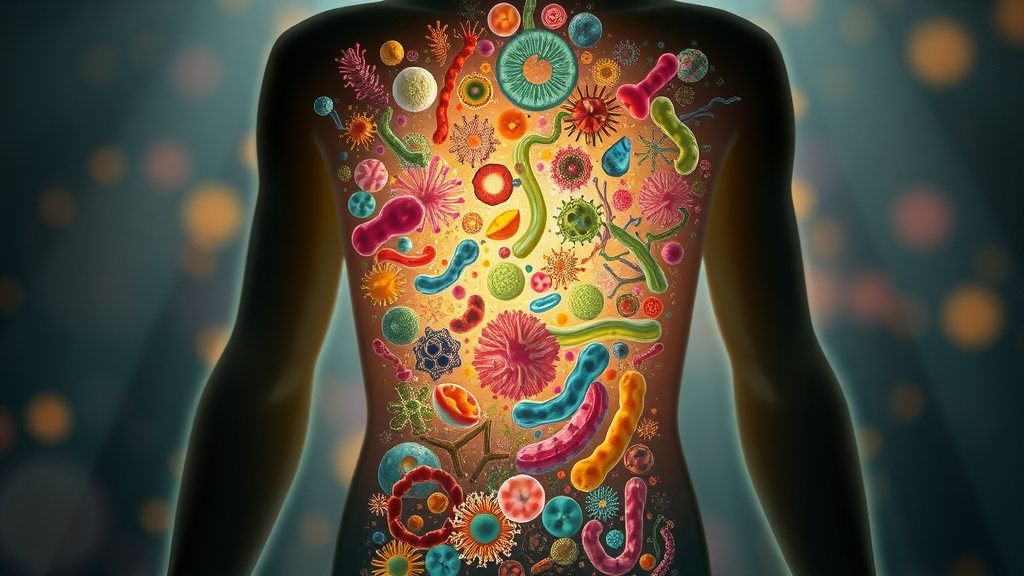
The Microbiome Explained: A Beginner’s Guide
The term microbiome refers to the vast collection of microscopic organisms—bacteria, fungi, viruses, and other microbes—that inhabit every body site, both inside and out, of the human body. Each of us hosts trillions of microbial cells that perform countless tasks essential to survival, health, and development. The human microbiome plays an important role in metabolizing nutrients, synthesizing vitamins and amino acids, protecting against harmful pathogens, and even influencing hormone and neurotransmitter production.
Within your GI tract , the gut microbiome houses one of the densest populations of microbes seen anywhere in the natural world. These communities of bacteria support the immune system, digest fiber into beneficial short-chain fatty acids, and help balance blood sugar—all without you even noticing. The sum total of these microbial communities, their genetic material, and how they interact with your own cells make up what scientists call the core microbiome , a cornerstone of both health and disease .
Microbiome research in recent years has uncovered that microbial ecology shifts throughout our lives, shaped by diet, antibiotics, environmental exposures, and even how we were born. A disturbance in the microbial community (also known as gut dysbiosis ) can spell trouble, linking to issues ranging from digestive upset to metabolic syndrome and immune disorders. By understanding the core microbiome , you gain the power to make informed choices for lifelong well-being.
Gut Microbiome vs. Human Microbiome: What’s the Difference?
While the human microbiome refers to every microbial community found on and within you, the gut microbiome is one of the most densely populated and most extensively researched. Think of the human body's microbiome as a patchwork quilt—each square representing unique microbial communities on the skin, mouth, gut, and other body sites. The gut microbiome, specifically, occupies your intestines and is crucial for digestive and immune health.
Other important body sites with unique microbial populations include the skin (the skin microbiome ), the mouth (the oral microbiome ), and even intimate areas. Each plays a specialized important role for its location: protective, metabolic, or immune-based tasks that collectively safeguard the human body .
The table below outlines the most studied microbiome types and their distinctive contributions:
| Microbiome Type | Location | Key Functions | Example Bacteria |
|---|---|---|---|
| Gut microbiome | Intestines | Digestion, immunity, synthesis of vitamins | Bacteroides, Lactobacillus |
| Skin microbiome | Skin | Protection, wound healing | Staphylococcus, Corynebacterium |
| Oral microbiome | Mouth | Oral health, digestion | Streptococcus, Veillonella |
Inside the Gut Microbiome: Key Facts and Its Important Role in Health
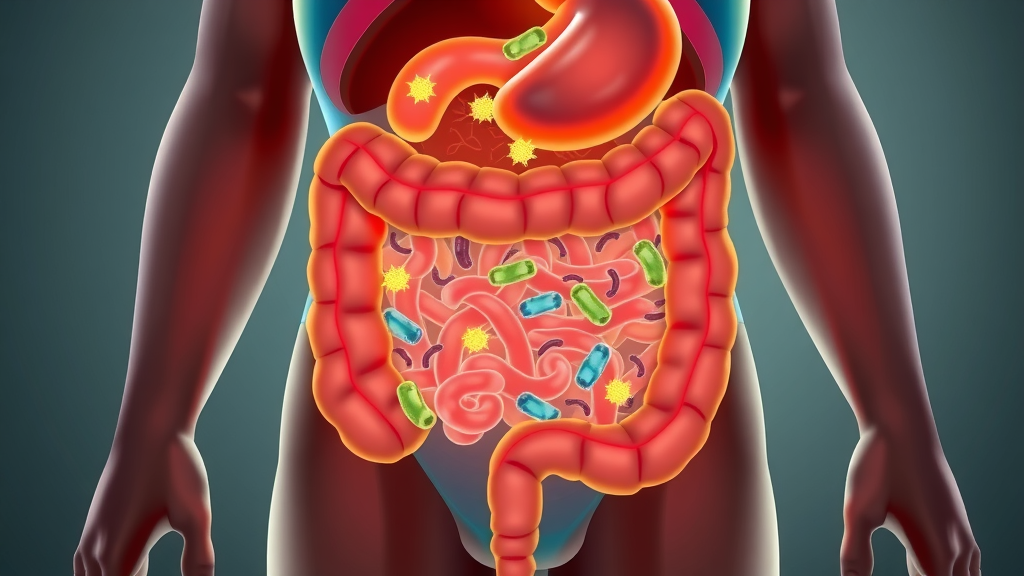
Gut Microbiota: The Community of Gut Bacteria and Gut Microbes
The gut microbiota is a remarkably vibrant community, comprising an estimated 100 trillion microbes—including bacteria, archaea, fungi, and viruses—all thriving in your intestines. These gut bacteria and gut microbes break down dietary fiber, produce vital nutrients like amino acids and short-chain fatty acids , and maintain the integrity of your gut lining. The density and variety of these microbial taxa make the gut one of the most diverse ecosystems you’ll find anywhere, even rivaling those in nature’s most fertile soils!
This complex ecosystem is not static; it grows and shifts based on what you eat, your medical history, and even where you live. A healthy gut microbiome supports immune function, helps control inflammation, and acts as a natural barrier against harmful invaders. Disruptions in this microbial community—a phenomenon called gut dysbiosis —have been correlated with an increased risk for allergies, obesity, diabetes, and inflammatory conditions.
Research has affirmed that nurturing a diverse and balanced microbial community not only fuels your digestive health but can also bolster your body’s resilience to stressors. With every meal and every phase of life, your gut microbiota is working around the clock for your well-being.
The Human Gut: How Microbiome Diversity Affects Your Everyday Health
A diverse gut microbiome is critical for the proper functioning of the immune system and other crucial processes. As more microbial taxa and species thrive within your intestines, your body is better equipped to extract nutrients, neutralize toxins, produce chain fatty acids , and protect itself from invaders. This important role explains why people with higher microbial diversity often have stronger immunity, more stable moods, and a healthier weight profile.
Clinical studies link a lack of microbial diversity—sometimes triggered by antibiotics, illness, or poor diet—to greater risks of digestive problems, immune dysregulation, and even mental health struggles. The gut-brain axis, a communication pathway between gut microbes and the nervous system, is now recognized as a major player in mood and cognitive health. This is why taking care of your gut microbiome may improve not only your digestion but also your overall sense of vitality and well-being.
Here are the top benefits of a balanced gut microbiome:
- Supports immune system function
- Aids digestion and nutrient absorption
- Helps manage blood sugar and weight
- Produces essential vitamins
- Influences mood and brain health
“The gut microbiome is perhaps the most important organ you never knew you had.” – Dr. Robynne Chutkan
How Gut Microbiome Impacts Blood Sugar and Overall Metabolism
Role of Gut Bacteria in Glucose Regulation
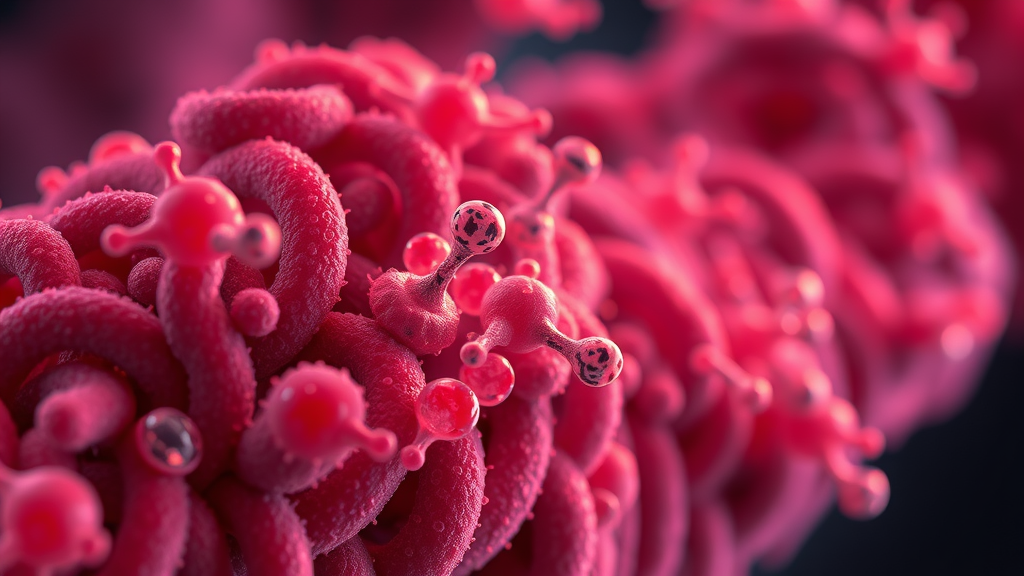
Your gut bacteria are central players in the regulation of blood sugar and metabolic health. After you eat, certain gut microbes help break down complex carbohydrates into short-chain fatty acids (SCFAs), which in turn influence how sugars are absorbed and stored. By releasing these crucial metabolites, gut microbiota support healthy insulin sensitivity and help prevent dangerous spikes in blood glucose levels—critical for managing energy, weight, and metabolic efficiency.
Studies show that people with more diverse and abundant SCFA-producing gut bacteria enjoy better blood sugar control, are less likely to experience weight gain and metabolic syndrome, and have lower risks for developing type 2 diabetes. On the flipside, disrupted microbial ecology —say, after a round of antibiotics or a stretch of poor eating—may impair these benefits and raise your vulnerability to glucose dysregulation.
Maintaining a healthy gut microbiome goes far beyond digestion: it is directly tied to the regulation of blood sugar and energetic balance. Recognizing this link equips you to make smarter dietary choices that protect your metabolism for the long haul.
Important Role of the Microbiome in Preventing Metabolic Disorders
Your microbiome acts as a metabolic gatekeeper. When diverse and balanced, it keeps your GI tract running smoothly, manages blood sugar, and even signals satiety and hunger to your brain. If the microbial community loses its balance, that stability falters, and you may become prone to metabolic disorders such as type 2 diabetes, obesity, and insulin resistance.
Emerging research links altered gut microbiota (often from environmental factors like antibiotics or high-fat diets) to impaired production of SCFAs, weakened immune function, and disruptions in how the body processes nutrients. Strategies like eating a fiber-rich diet, consuming fermented foods, and supporting beneficial microbial taxa help keep your metabolism optimized naturally.
By nurturing your gut microbiome, you’re investing in your metabolic health and decreasing your risk for a wide array of chronic diseases—truly an example of prevention being the best medicine.
Environmental Factors That Affect Your Microbiome

Diet as a Key Environmental Factor Shaping Your Gut Microbiota
Your everyday food choices play arguably the most powerful role in shaping your gut microbiota . Diets high in fiber, colorful fruits, vegetables, and fermented foods help beneficial gut bacteria flourish, supporting strong immunity and regular digestion. On the other hand, processed foods, excessive sugars, and unhealthy fats starve good bacteria and feed less helpful—or even harmful—microbial taxa, leading to gut dysbiosis .
Plant-based fibers, known as prebiotics, are especially vital as they feed key microbial communities that produce chain fatty acids supporting gut health and immune functions. Recent microbiome research shows that people who eat a wide variety of plant foods each week maintain the highest diversity of gut bacteria and, consequently, experience the most resilient health.
Choosing foods that support your microbiome is a simple yet profound way to influence everything from digestion to weight gain and even cognitive clarity. Nutrition is the core mechanism by which you can empower your gut microbes and safeguard your well-being for life.
Lifestyle Choices and Other Environmental Factors That Influence Microbiome Health
Beyond diet, the health of your microbiome is profoundly affected by lifestyle and environmental factors such as antibiotic use, stress, physical activity, sleep, and exposure to environmental toxins. For instance, while antibiotics are sometimes necessary, overuse can wipe out entire swathes of beneficial bacteria, resulting in gut dysbiosis and greater vulnerability to pathogens. Chronic stress, in turn, may disrupt the balance of the gut microbial community, impacting your immune system and even your mood.
Physical activity has been related to higher microbial diversity, while restful sleep supports your body's natural healing rhythms—both of which encourage a more resilient core microbiome . Minimizing exposure to environmental toxins, such as pesticides or industrial chemicals, can also help preserve the sensitive balance of your gut microbes.
Check out the table below for a snapshot of how common environmental factors impact gut microbiome diversity:
| Factor | Impact on Gut Microbiome |
|---|---|
| Diet high in fiber | Increases good gut bacteria |
| Antibiotic use | May reduce microbiome diversity |
| Stress | Can disrupt gut microbiota |
| Probiotic consumption | Supports beneficial microbes |
| Environmental toxins | May harm gut microbiota |
How to Support a Healthy Gut Microbiome: Practical Tips and Daily Habits

Foods That Support Gut Microbes and Gut Bacteria
Achieving a healthy gut starts with what you put on your plate. Eating a variety of plant-based foods provides prebiotic fibers, essential for nurturing beneficial gut bacteria . Fermented foods such as yogurt, kefir, kimchi, sauerkraut, and miso are natural sources of probiotics that introduce live beneficial microbes directly into your GI tract . Together, prebiotics and probiotics create a rich environment for the gut microbiome to flourish.
Foods rich in polyphenols (like berries, green tea, and dark chocolate) and healthy fats (such as those found in avocados, nuts, and olive oil) have also been shown to nurture microbial diversity and function. Limiting your intake of processed foods and added sugars helps prevent the overgrowth of unhelpful bacterial strains, protecting the delicate balance of your microbial communities.
Making these dietary shifts may seem simple, but even small consistent changes can yield big improvements in digestive comfort, mental clarity, and long-term health outcomes. Your daily food choices act as building blocks for a stable and thriving microbiome ecosystem.
Daily Lifestyle Habits to Nurture Your Microbiome
While diet is foundational, nurturing a healthy microbiome also relies on your overall lifestyle. Prioritize regular physical activity —exercise boosts the diversity and resilience of your microbial ecosystem. Manage stress with techniques such as mindfulness, yoga, or deep breathing, since chronic stress can hinder the health of your gut bacteria. Maintaining consistent sleep patterns gives your body and microbes time to rest, recover, and repair each night.
Be judicious with antibiotic use—take them only as prescribed and balance with probiotic supplements if your healthcare provider recommends this. Staying hydrated and spending time outdoors exposes you to a wider variety of environmental microbes, potentially enriching your core microbiome . All these daily practices reinforce the natural processes that keep your microbiome balanced.
Here are 5 ways to enhance your microbiome naturally:
- Eat more fruits, vegetables, and fermented foods
- Avoid unnecessary antibiotics
- Manage stress effectively
- Stay physically active
- Get adequate sleep

People Also Ask: Microbiome FAQs
How can I repair my microbiome?
- Repairing your microbiome involves adopting a diet rich in prebiotics and probiotics, managing stress, ensuring adequate sleep, and avoiding unnecessary antibiotics. Gradual changes in lifestyle can significantly restore gut microbiome balance.
What is the microbiome?
- The microbiome refers to all the microorganisms and their genetic material that live in and on your body, playing an essential role in health and disease prevention.
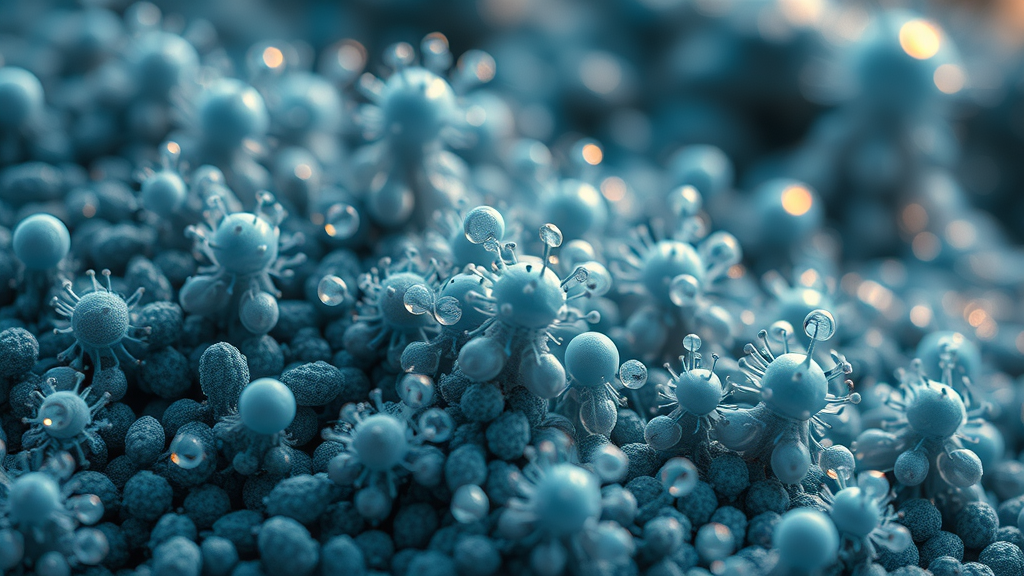
How do you clean your gut microbiome?
- To cleanse your gut microbiome, increase fiber intake, reduce processed foods, consume fermented foods, and stay hydrated. However, extreme cleanses are usually not recommended; gradual dietary changes are safer and more effective.
Is microbiome the same as probiotics?
- No, the microbiome is the entire community of microorganisms in your body, while probiotics refer specifically to live beneficial bacteria that help maintain a healthy microbial balance.
Recent Discoveries in Microbiome Science: Unlocking New Frontiers for Human Health

Innovative Research on the Human Microbiome and Future Possibilities
With technological advances in DNA sequencing and data analysis, microbiome research is rapidly redefining our understanding of human health . Recent studies reveal that the microbial community inside the human gut can impact everything from autoimmune risk to neurological conditions, providing hope for tailored therapies and nutrition plans. Scientists are uncovering new links between microbiome diversity and chronic diseases, paving the way for personalized medicine and targeted interventions.
Companies now offer at-home gut testing kits that use sequence data to provide diet and supplement advice based on your unique microbiome signature. Research continues into microbial ecology , mapping how communities shift after diet changes, travel, or illness. Innovative therapies like fecal microbiota transplantation and designer probiotics are just the beginning, opening new frontiers for health interventions. The future of microbiome science is not just about treating disease but about empowering us to thrive by personalizing prevention and well-being.
“We are just beginning to understand the extraordinary influence of the human microbiome on virtually every aspect of health.” – Dr. Rob Knight
Top Takeaways on Unlocking the Magic of Your Microbiome for Better Health
- The microbiome is vital for immune, digestive, and mental health
- Diet, lifestyle, and environmental factors profoundly impact the gut microbiome
- You can actively support your microbiome through nutrition and daily habits
- Ongoing research continues to reveal new health connections
Ready to Unleash Your Health Potential with a Healthy Microbiome?
- Call us +1 817-903-6376 to take the next step in optimizing your health with tailored microbiome insights.
Your journey to optimal wellness begins within—unlock the power of your microbiome today.
Start small by adding fiber-rich foods, managing stress, and staying active—every positive habit can unlock the immense potential of your microbiome for life-long health.
 Add Row
Add Row  Add
Add 



Write A Comment